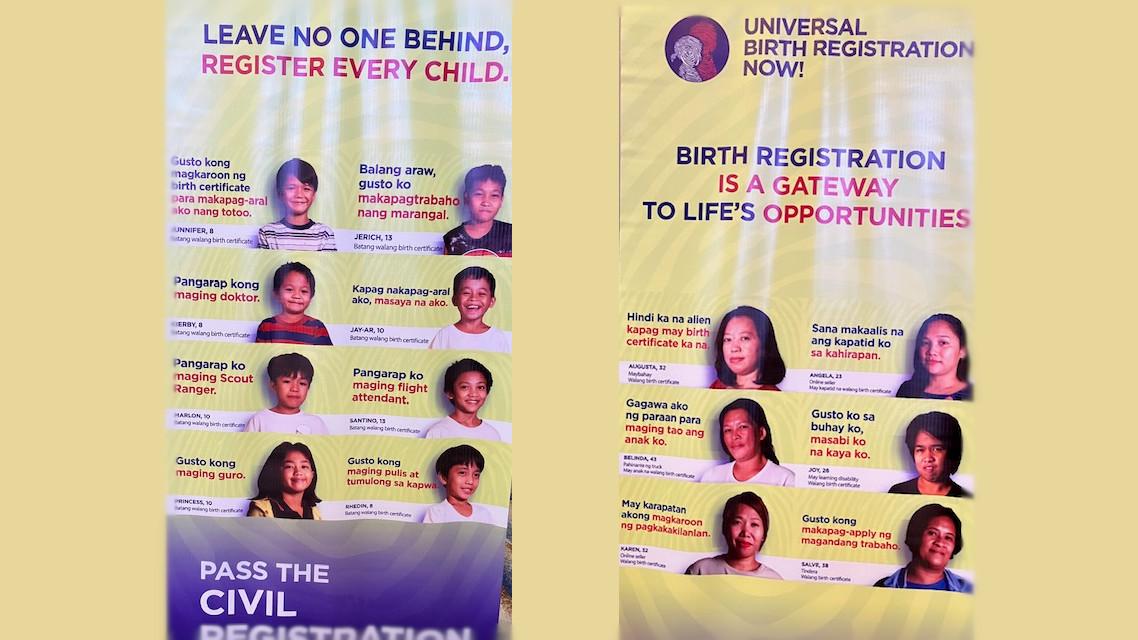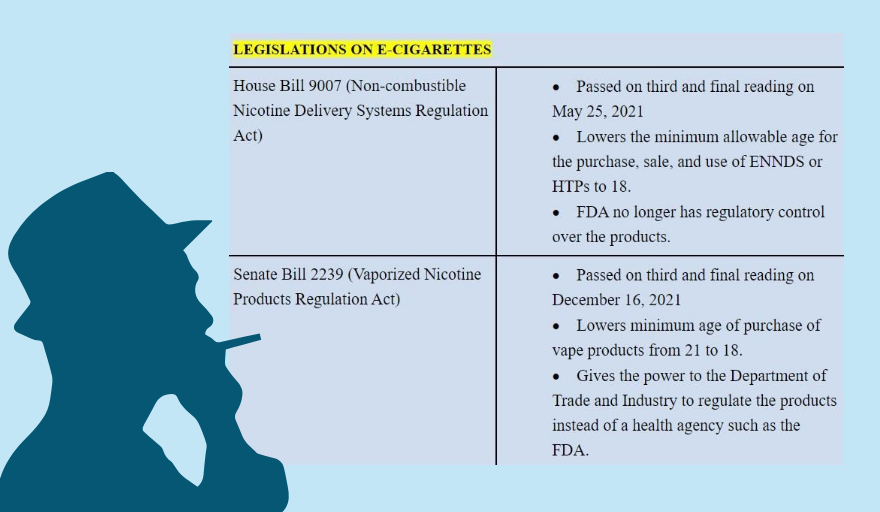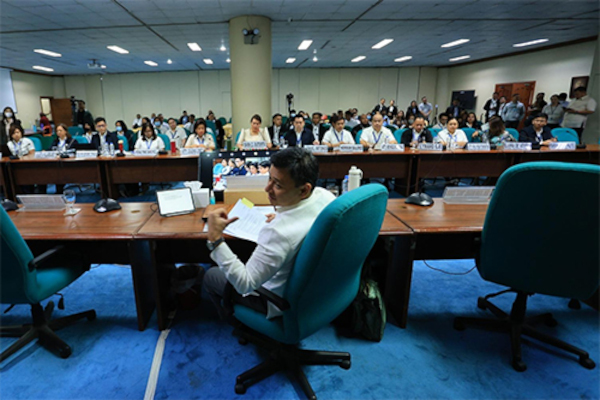The numbers are appalling! Two hundred Chinese nationals with fake birth certificates and 3.7 million Filipinos without birth certificates, of whom 1.4 million are ages 14 and younger.
It’s about time Congress acted swiftly on a pending bill that will ease the registration of births, marriages and deaths of Filipinos and penalize those who take advantage of the system’s weaknesses.
The last comprehensive national law on civil registration, Republic Act 3753, or the Civil Registration Law, was enacted more than 90 years ago, in November 1930.
The Philippine Legislators’ Committee on Population and Development Foundation (PLCPD) presented to the media last July 12 the salient features of the pending legislation, which has become relevant in view of the revelations in the Senate probe on the alleged involvement of suspended Bamban, Tarlac Mayor Alice Leal Guo in unlawful activities connected with the operations of the Philippine offshore gaming operation (POGO) hub in her town.
From the Senate probe, it appears that Guo had a late registration of birth in November 2005, when she was 19 years old. As a consequence, the senators discovered several other irregularities in the process that made it apparently easy for the Bamban mayor to obtain Filipino citizenship.
Sen. Sherwin Gatchalian said on Friday that foreigners managed to acquire Filipino citizenship practically overnight simply by paying P300,000 in exchange for a fraudulent birth certificate and driving license.
He said this was the modus operandi uncovered by the National Bureau of Investigation involving 200 Chinese nationals who were able to secure certificates of live birth in 2018 and 2019 alone from the civil registry of Santa Cruz, Davao del Sur province.
Because of this, Gatchalian is seeking a suspension of the policy that allows late registration of birth.
But the PLCPD, a group of forward-looking lawmakers and advocates working on policies related to population and human development, noted that late registration is mostly in remote and disadvantaged areas where the process of acquiring a birth certificate is hindered by distance, low literacy or financial constraints.
“Without a birth certificate, a child or an individual faces the risk of being denied [the] rights to identity, education, health services, inheritance, employment, and even legal justice in cases where determining the age is crucial,” Romeo Dongeto, executive director of PLCPD, explained.
A birth certificate is usually required for school enrolment or when applying for a job, licenses, passport and other identification documents.
“A birth certificate is every Filipino child’s passport to their hopes and dreams. We need to pass the Civil Registration bill to make birth registration free and accessible, especially for the most vulnerable Filipinos,” Dongeto said.
The measure also involves modernizing and digitizing the civil registration system, as well as establishing barangay-level registration to reach more marginalized sectors.
Registration of marriages and deaths is as important as legal documentation of births.
Data from the Philippine Statistics Authority (PSA) show that many deaths go unreported due to logistical hurdles and cultural practices, particularly in the Bangsamoro Autonomous Region in Muslim Mindanao (BARMM), where only 42% of deaths were registered in 2021.
Dennis Mapa, national statistician and civil registrar general, said an omnibus bill on civil registration and vital statistics is “long overdue and should be a legislative priority” to improve further the efficiency of the delivery of civil registration services as well as ensure the integrity of civil registry documents in the civil registry offices.
“A death certificate is needed for surviving family members to access inheritance, social pensions, insurance and burial assistance. With an improved and accessible civil registration system, the government can properly assist these individuals and ensure that their rights are being upheld,” said lawyer Sophia Monica San Luis, a civil registry global expert.
Sen. Risa Hontiveros, principal author of the Civil Registration bill in the Senate, said the falsification of civil registry documents, which is what the Guo family apparently did, must be stopped.
“Our current investigation has revealed deep cracks in our systems that need correcting. It also exposed the ways our institutions have been corrupted by unscrupulous individuals who want to exploit the weaknesses of our people. The most vulnerable in society are affected by the lack of an efficient and honest civil registration and vital statistics system,” said Hontiveros, who is leading the probe into Guo’s alleged involvement in the POGOs’ illegal operations.
“Delayed registration of birth happens,” she acknowledged, noting that this is a significant concern, especially among Filipinos who lack the financial means to obtain a birth certificate. However, she said: “It’s a different story if the weaknesses of our system are being abused, like in the case of the Guo family. A streamlined and strengthened civil registration and vital statistics system is needed to safeguard the safety, nationality and citizenship of the most vulnerable Filipinos.”
To Tingog party-list Rep. Jude Acidre, a deputy majority leader at the House and one of the bill’s authors, emphasized that the benefits of an improved civil registration system do not end with the individual’s ability to access their rights; they also translate into foundational data that supports national progress.
“If every birth or vital event of a Filipino is registered, we can generate accurate data. With accurate data, we can make evidence-based policies and decisions to ensure that no one is being left behind,” he pointed out.
Health Department Undersecretary Emmie Liza Perez-Chiong, for her part, said reforming the civil registration system will address the huge gaps in the availability and quality of critical data on vital events of a person, including birth, marriage and death.
Having accurate data is crucial in national health policy and planning and coordinating services for the Filipino population at all levels of the country’s health care system.
The views in this column are those of the author and do not necessarily reflect the views of VERA Files.
This column also appeared in The Manila Times.






